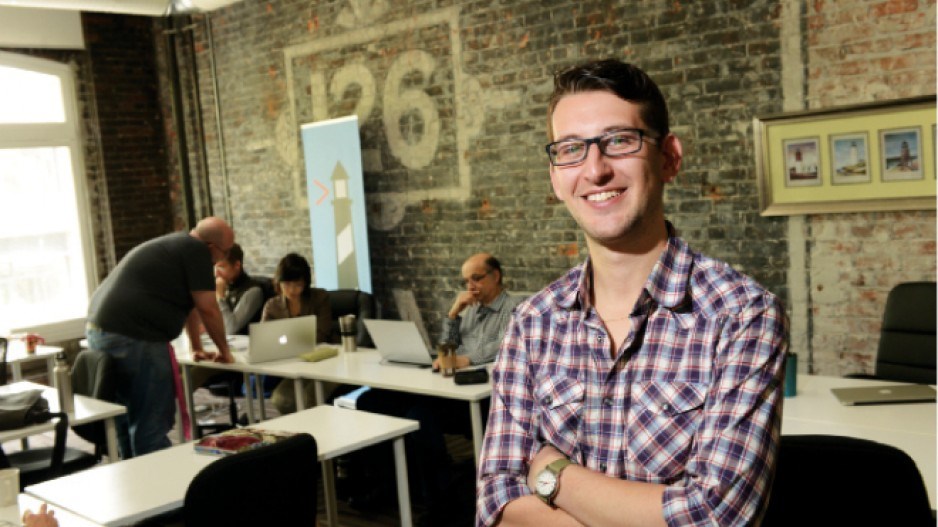When Jeremy Shaki entered the marketing world in the mid-aughts, it wasn't long before he began encountering an increasing number of colleagues who knew the language of computers.
“That made them super-valuable assets because they were able to build web apps for their clients or for the company that they worked for, while also understanding the principles of marketing,” he recalled.
“It was really unique, and that wasn't something that was happening beforehand.”
Shaki eventually left marketing to help launch Lighthouse Labs in Vancouver, where students spend up to 14 hours a day learning to write code.
About 90% of the clients stepping through the doors of the Gastown office are career-changers, trying to augment their tech skills in a workforce that's increasingly tech-driven, according to Shaki.
“Their ultimate goal is to be hybrids – people who can code but build web apps within the job they're doing,” he said.
While the image of a socially awkward youth chugging Red Bull in a stained hoodie may have been ingrained in pop culture as the typical coder, Shaki said that's really not the case anymore.
The boot camp has been attracting everyone from entrepreneurs to journalists, and most clients are in their late 20s to 30s. But even that new image of a coder is destined to change soon, Shaki said.
Elementary school students are taking classes to learn how to use code to build programs, websites and apps.
Learning the language of computers will eventually be as banal as studying French in class, he said.
Coders will be everyday people.
Sandra Wear, CEO of Canadian Women in Technology, isn't waiting for all schools to get on board the coding train.
She's co-organizing the July 19 Be Like Ada programming seminar in Vancouver, which takes teen girls through a daylong coding boot camp.
“To succeed in the future, you don't need to be coding full time, but you'll need to know a little bit of code regardless of the job you take, whether it's in a tech company or a bank,” Wear said.
“Coding is going to be as important as reading or writing. You don't need any special skills to code, but it's going to be part of every job.”
While Lighthouse Labs is attracting a diverse group of “hybrids” who don't fit the mould of the typical coder, Wear pointed out the tech industry is still very much dominated by males.
Just 18% of engineering undergrads were female in 2012, according to Engineers Canada data.
That's down from 2001 when 21% of engineering undergrads were women.
B.C. is doing even worse than the rest of the country, with women making up 15% of engineering undergrads in 2012.
“You don't need to be an engineer to leverage knowledge about coding,” Wear added.
“Technology is pervasive, and so we're going to start communicating in that way, too, so we need to be able to understand it.”




